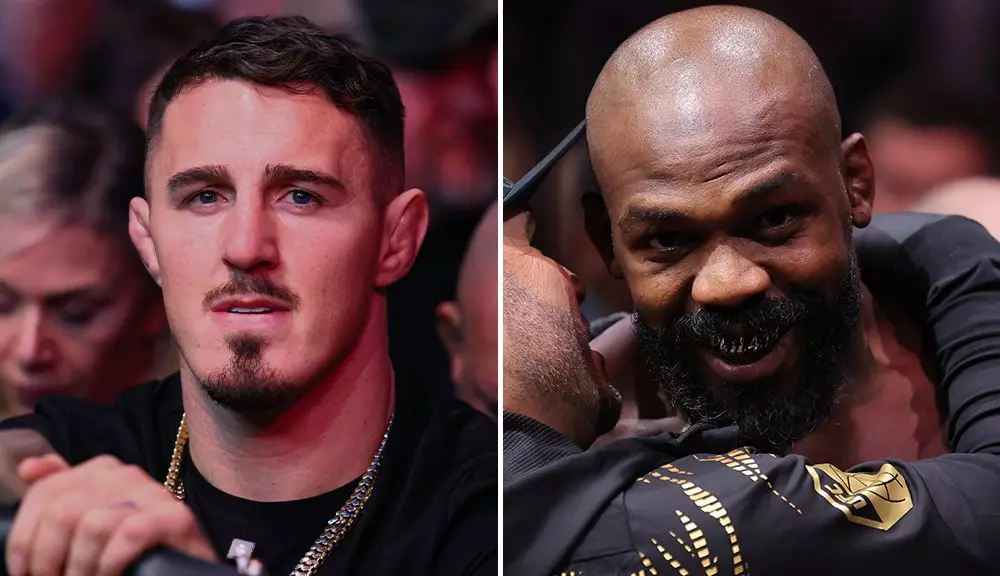The realm of mixed martial arts (MMA) thrives on discussions of greatness, often culminating in the debate over who truly deserves the title of the “Greatest of All Time” (GOAT). Recently, Tom Aspinall, an emerging heavyweight star in the UFC, expressed his views during an interview with Jon Bernard Kairouz. His perspective, which centers on the controversial career of Jon Jones, underscores the complexities of defining greatness in a sport riddled with moral quandaries and competitive integrity issues.
Aspinall’s Criteria for Greatness
In Aspinall’s eyes, Georges St-Pierre (GSP) holds the top spot in MMA history, primarily due to his clean record regarding performance-enhancing drugs (PEDs). GSP’s exemplary career, marked by multiple championship reigns, remains untarnished by any violations, an aspect Aspinall believes should weigh considerably in the GOAT discussion. This standpoint introduces a critical measure of greatness—integrity. Aspinall’s assertion that Jones, despite his undeniable skill and achievements, cannot be the GOAT, stems from multiple doping violations that have marred his legacy.
The Case Against Jon Jones
Jon Jones, the former UFC light heavyweight champion and reigning heavyweight titleholder, possesses an impressive record but one that is markedly complicated by his history with banned substances. His two significant failures, before UFC 200 and UFC 214, reflect a pattern of issues that opponents and critics leverage when debating his standing among the all-time greats. Jones has faced serious repercussions, including suspensions and overturned victories, yet he maintains that he has never intentionally taken PEDs. However, the recurrent nature of these incidents casts a long shadow over his achievements.
The existence of trace amounts of a banned substance, which was deemed non-competitive at UFC 232, garners a mixed reaction. While some may argue that the negligible levels should not count against him, the fact remains that Jones has had multiple run-ins with anti-doping regulations, challenging the notion of a true champion.
Despite his criticisms, Aspinall does not deny Jones’s talent, ranking him second on his list of all-time greats. This duality in Aspinall’s view highlights a broader issue in the sport: one can recognize exceptional skill while simultaneously condemning unethical behavior. Aspinall’s embrace of this nuanced perspective reflects a growing sentiment in the MMA community, acknowledging that greatness in the cage must be balanced with sportsmanship and integrity outside of it.
Looking forward, Aspinall is in negotiations to face Jones, who recently defended his title against Stipe Miocic. Aspinall’s readiness to step into the octagon reflects both his ambition and the evolving landscape of the heavyweight division. His commitment to continuous improvement underscores the professionalism needed in a sport where legacy is shaped not just by victories but also by character.
The conversation surrounding the GOAT in MMA is intricate and multifaceted. Arguments illustrate that defining greatness is not merely about accolades and record statistics; integrity and character also play pivotal roles. Aspinall’s perspective sparks a necessary reflection on how we evaluate athletes, prompting fans and analysts alike to consider what qualities should define the greatest in the sport. The debate is far from settled, as the lines between skill, success, and integrity continue to blur in the dynamic world of MMA.

